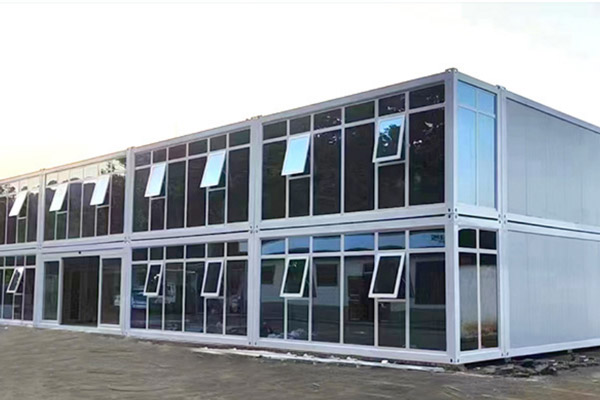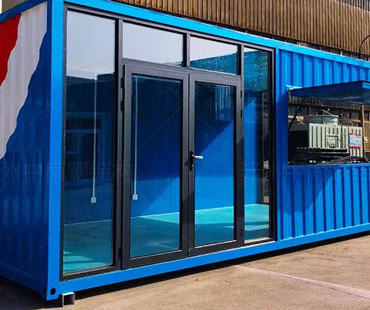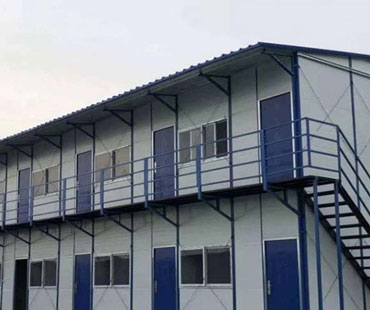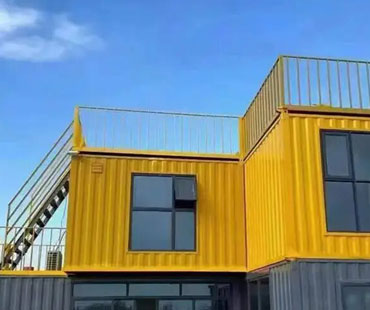In the last few decades, the world has witnessed a monumental shift in the way goods are transported, traded, and consumed. At the heart of this transformation lies the concept of containerization — the practice of using standardized shipping containers to streamline the process of moving goods across various modes of transport.
The concept of containerization can be traced back to the 1950s when American entrepreneur Malcolm McLean developed the first modern shipping container. This invention was revolutionary; it allowed goods to be packed into large, secure containers that could be easily loaded onto ships, trains, and trucks without the need for unpacking and repacking at each transfer point. The standardization of container sizes (most commonly 20-foot and 40-foot containers) enabled a more efficient transport system, drastically reducing shipping times and costs.

Impact on Global Trade
1.Increased Efficiency and Reduced Costs
Containerization has led to significant reductions in shipping costs. By utilizing standardized containers, shipping companies can maximize the space on vessels, leading to economies of scale. Loading and unloading times have been dramatically reduced, allowing ships to spend less time in port and more time at sea. This efficiency has enabled businesses to lower prices for consumers, making goods more accessible worldwide.
2.Expansion of Global Supply Chains
With the rise of the container economy, businesses have been able to source materials and manufacture products in distant locations, leading to the globalization of supply chains. Companies now routinely move components from various parts of the world to assemble finished products in a single location. This interconnectedness has made it possible for businesses to take advantage of lower labor costs and specialized resources, ultimately driving down production costs and increasing competitiveness.
3.Growth of Emerging Markets
The container economy has facilitated the rise of emerging markets as significant players in global trade. Countries that once had limited access to international markets are now able to participate more fully in the global economy. For example, nations in Southeast Asia, Africa, and Latin America have seen increased exports due to improved access to shipping infrastructure and logistics services. This shift has allowed these countries to diversify their economies and reduce reliance on traditional industries.
4.Changes in Trade Patterns
As containerization has made it easier to transport goods globally, trade patterns have shifted dramatically. Traditional trade routes have evolved, with new corridors emerging that reflect the changing landscape of global commerce. For instance, the growth of e-commerce has led to a surge in demand for container shipping, as businesses seek to fulfill orders quickly and efficiently. The rise of mega-ports and logistics hubs has also transformed regional economies, creating new centers of trade and commerce.
The container economy is not static; it continues to evolve with technological advancements. Innovations such as automation, digital tracking systems, and the Internet of Things (IoT) are enhancing the efficiency of container shipping. Automated ports are reducing labor costs and speeding up the loading and unloading process, while digital platforms enable real-time tracking of shipments, improving transparency and reliability in the supply chain.
Furthermore, as the world faces increasing pressures from climate change, the shipping industry is also exploring sustainable practices. The development of eco-friendly vessels and alternative fuels is becoming a priority, aiming to reduce the carbon footprint of container shipping. This shift towards sustainability will likely shape the future of the container economy, as businesses and consumers alike demand greener practices.
The rise of the container economy has transformed global trade patterns in profound ways. By enabling efficient transportation, fostering globalization, and reshaping trade routes, containerization has not only changed the logistics of moving goods but has also influenced economic development across the globe. As technology continues to advance and sustainability becomes a critical focus, the container economy is poised to adapt further, ensuring its relevance in the ever-evolving landscape of global commerce. The journey of goods from one corner of the world to another has never been easier, and as we look to the future, the implications of this transformation will continue to resonate across industries and nations alike.


